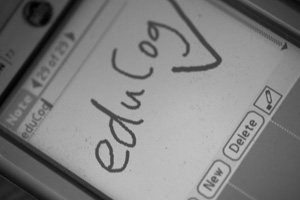Home --> Privacy Policy
eduCog LLC privacy policy
![]()
OvervieweduCog stores personal data for both instructors and students in LON-CAPA domains which use its LON-CAPA hosting service. Within each hosted LON-CAPA domain, instructors are assigned rights to create courses. A LON-CAPA domain is established either for a single school or a single school district, or for a single post-secondary college or university. eduCog's servers are located in the USA. Accordingly, if a user accesses LON-CAPA service for his/her hosted domain in a country other than USA, this will result in the transfer of the user's personal data across international borders. What information does eduCog collect?When an instructor creates a user account in a LON-CAPA domain hosted by eduCog he/she will enter an institutional e-mail address during the account creation process, and eduCog will verify that the e-mail address is a legitimate address for the particular institution. Creation of the user account requires that the requester is able to receive e-mail at the institutional e-mail address provided. The data an instructor is required to provide when creating a user account in a LON-CAPA domain hosted by eduCog are: institutional e-mail address, family name and given name. Instructors (i.e., faculty at post-secondary institutions, and teachers at high schools) receive rights to create courses in the domain to which they belong. When an instructor creates a course in a LON-CAPA domain, he/she is assigned a Course Coordinator role in the course. A user with a Course Coordinator role in a LON-CAPA course receives rights to create user accounts in his/her own LON-CAPA domain for the students in the classes he/she teaches. When an instructor requests/creates a LON-CAPA course in his/her domain hosted by eduCog, he/she will provide a billing address. The only student data an instructor is required to provide when creating a user account for a student is a unique username. Instructors can also optionally choose to supply each student's family name, given name, middle name, generation (e.g., Jr, II etc.), student ID, and/or e-mail address, (or can leave any of these fields blank). The instructor can choose to provide an institutional e-mail address (e.g., the instructor's own e-mail address) in place of a student's actual e-mail address. All LON-CAPA users can optionally store one or more notification e-mail addresses. Those addresses will be used to forward notification of receipt of a message in the LON-CAPA system, but may also be used if the user needs to reset a forgotten password. LON-CAPA stores information about each user's log-in, course selection, and logout. The data stored include: (a) the time of the action, (b) the IP address of the web browser used for access, and (c) the username. LON-CAPA stores information about each student's activity in a LON-CAPA course. The activity recorded includes: (a) the time of the access, (b) the IP address of the web browser used for access, (c) the URL requested, (d) the username, and (e) data POSTed via form submission, if the activity is the submission of an answer to an assessment item in a course. Student activity in a course is considered an educational record, and accordingly, access to that information is restricted to the student's instructor(s) in the particular course. How might eduCog share your personal information?eduCog does not provide personal information about its users to third parties. However, if a user in a LON-CAPA domain hosted by eduCog is enrolled in a course in a different LON-CAPA domain which also belongs to the same cluster of collaborating institutions, then the instructor of that course would be able to view any or all of the student's family name, given name, middle name, generation (e.g., Jr, II etc.), student ID, and e-mail address, if stored in the user's profile in the user's home domain (i.e., a LON-CAPA domain hosted by eduCog). How does eduCog secure, store and retain your data?eduCog follows accepted standards in the storage and protection of the personal data it collects, both during transmission, and once received and stored, including the use of encryption during transmission. |  |
eduCog, LLC © eduCog, LLC, 2018 |
 |